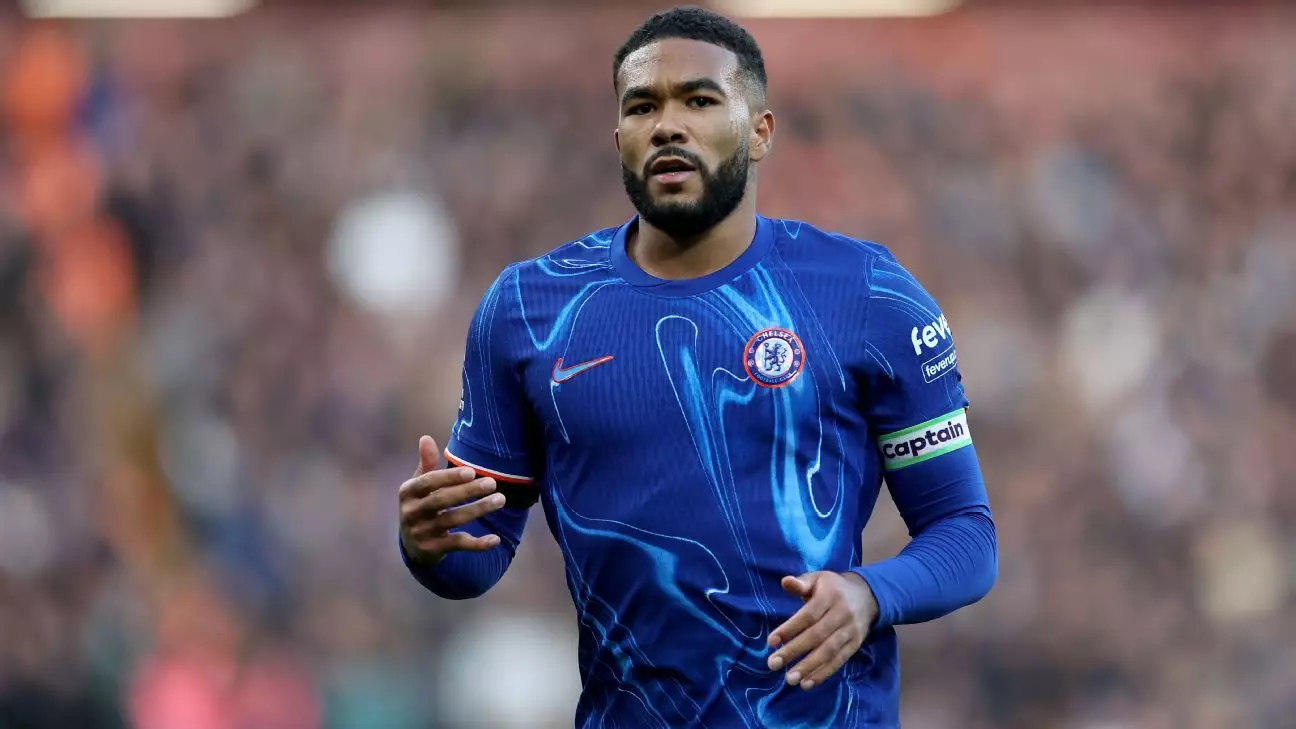In recent discussions, Chelsea manager Enzo Maresca has surfaced an urgent need for stronger leadership within the team’s dressing room. His comments revolve around team dynamics while highlighting the expectations placed upon captain Reece James. Following his recovery from a hamstring injury, which had sidelined him for an extended period, James made his first start of the season in a disappointing match against Liverpool. Here, it is crucial to evaluate not only James’s performance but also the broader implications of leadership within the club.
Maresca’s assertion that James should embody more than the title of captain indicates a systemic issue in how leadership roles are perceived in the team. Leadership is not merely about holding a position; it’s about consistently setting an example and galvanizing teammates around a shared vision. If a captain begins to feel entitled to give less simply due to their role, it undermines the very foundation of team unity. This sentiment can resonate beyond Chelsea and serves as a reminder to sports teams about the importance of authenticity in leadership.
Maresca’s comments reveal a complex relationship between expectations and performance. By stating that he expects more from James, he urges not only accountability from the captain, but also a self-reflection among all players about their contributions. The typical expectation that a captain should naturally elevate the team dynamic may overlook the fact that leadership is an active, ongoing process. For James, who is recognized for his quiet demeanor, the challenge lies in translating his skills and experience into vocal and inspirational guidance.
Moreover, Maresca’s observations suggest that other team members must also step up to fill the leadership void. The mention of Tosin Adarabioyo as a potential leader highlights the manager’s acknowledgment of individual capabilities beyond just positional authority. By promoting this collaborative approach to leadership, Maresca may instill a more distributed sense of responsibility among the players, encouraging them to challenge each other.
Chelsea’s recent performance, securing four wins out of eight Premier League games, indicates promise but also reveals room for improvement. The upcoming match against Newcastle serves as a crucial benchmark for the team’s aspirations this season. Achieving harmony in leadership will be essential for bolstering collective morale and driving success on the field.
The crux of the matter remains that Chelsea must cultivate an environment where leadership is fostered at all levels—not just relegated to specific individuals. The development of younger players into leaders could significantly alter the dynamics and culture of the club. Maresca’s recognition of the current leadership gap is an important step towards building a cohesive unit that drives results both on and off the pitch.
While the presence of traditional leadership is critical, the evolution of this role within the Chelsea squad will ultimately dictate their competitiveness in the league. Reece James, along with his teammates, stands at a crossroads where personal growth and collective leadership can redefine the club’s narrative this season.
